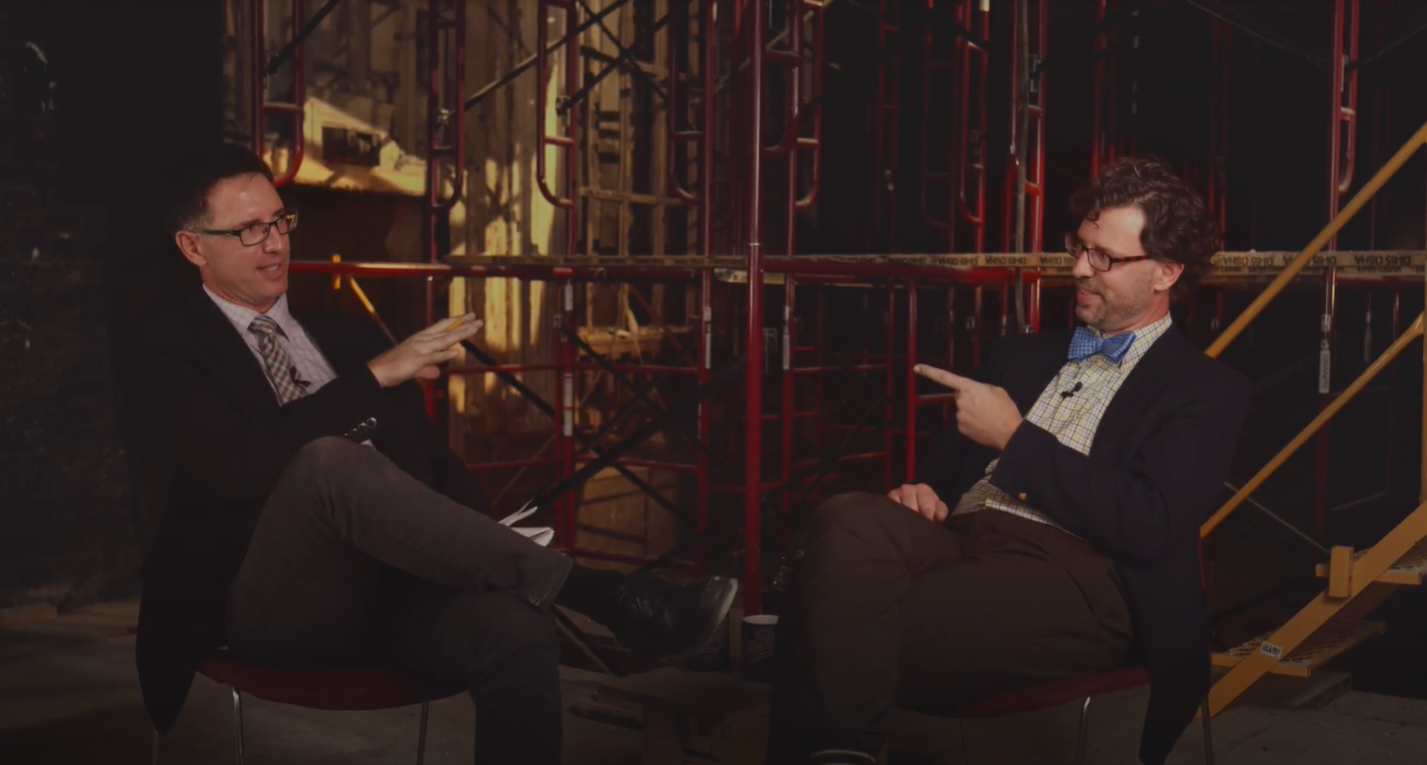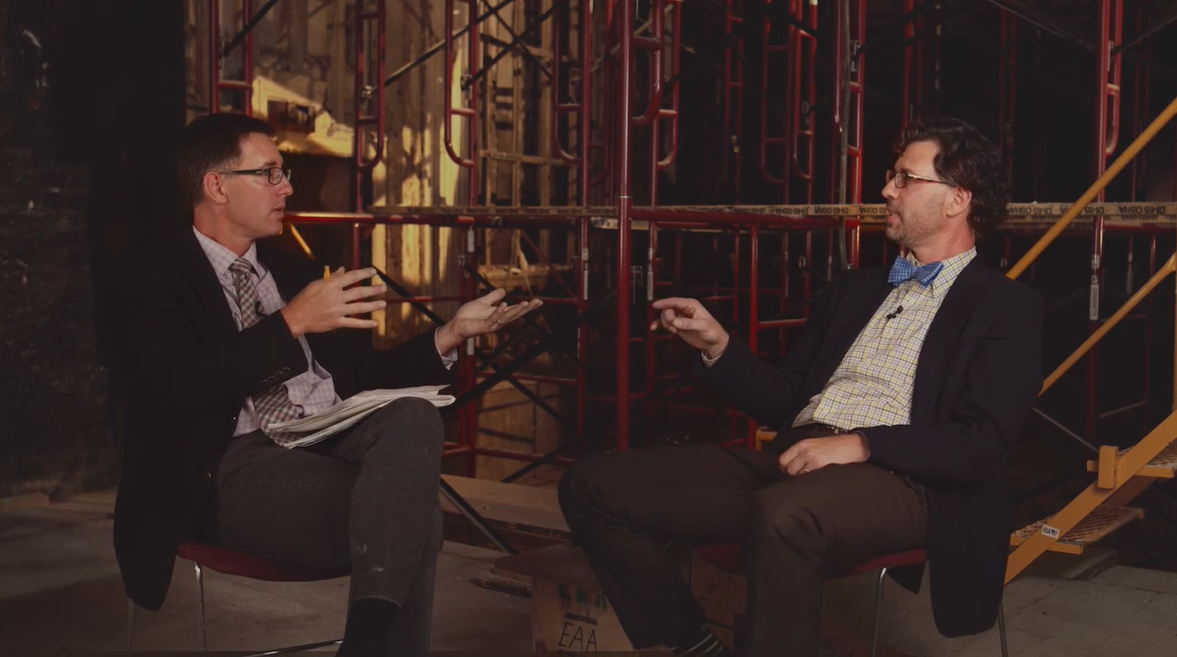New Polity is delighted to announce the arrival of our first videos! You can access our first free mini-series featuring Nick and Alex Plato on our Video Courses page. Alongside these extended interviews, we’ll be adding shorter content to our YouTube channel. This video below is one such example of that. Here Professor Alex Plato (Franciscan University) discusses the modern obsession of treating economics as a science—as opposed to the Scholastic conception of economics as a part of moral philosophy. I’d like to briefly add on to his good insight.
There are two dominant themes in liberalism: there is a political/constitutional commitment to the rule of law, rather than men, and an economic commitment to a free market, rather than to virtuous economic decisions. Both commitments mistakenly assume that society is run by systems, not people.
Karl Marx exposes how the primacy of “systems” penetrates the psychology and the economic reality of those working and living within liberal societies. As systems become more ubiquitous and influential, we begin to think of them as objects that control us, not us them:
The sensuous external world more and more ceases to be an object belonging to his labour—to be his labour’s means of life; and secondly, that it more and more ceases to be means of life in the immediate sense, means for the physical subsistence of the worker… Thus in this double respect the worker becomes a slave of his object (Marx, Economic and Philosophical Manuscripts of 1844, 72-73).
It is almost a capitalist magic trick that Marx describes: when people cease to own their tools, their tools begin to take on a life of their own. Because the capitalist owns the machine, the machine appears as if it had a life independent of its (non-owning) human operator—the laborer. It is a phenomenon of “slaves without masters” as my friend’s friend has called it. The socialists seem to believe that there really is no way out. People are no longer in control, systems are.
Modern bourgeois society with its relations of production, of exchange and property, a society that has conjured up such gigantic means of production and of exchange, is like the sorcerer, who is no longer able to control the powers of the nether world whom he has called up by his spells (Marx, Communist Manifesto, Ch.1).
And so the socialists, like the liberals, put their faith in one more system, re-articulating history itself as a giant machine that will necessarily produce its mechanical result: the classless society. The responsibility for the order of society has gone to the gods and humanity can do nothing.
Money is a prime example of this phenomenon. We are more dependent on it for our livelihood than our fathers and their fathers before them. We are devastatingly subject to its varying valuations, as the COVID-19 stimulus bills are making abundantly clear, and we are bound to follow money’s ebb and flow wherever it goes. As a result, many of the theoretical investigations into the nature of money take it as a natural thing, and seek to understand what it is—an ontological question, the answer to which is static throughout time—instead of asking what it should be and how to use it.
If a person wrote a law, one would hardly determine the full extent of that law’s worth and justice by asking “what is the law”. The law is a human creation. We would also need to ask “why would he create the law” and “what allowed him to create it?”—questions that begin with people. Money is likewise a human artifact. To ask what money is apart from humanity is an attempt to treat it as an objective tool that lives, moves, and breathes on its own. One cannot assign normative properties to an artifact as one can to a natural substance.
We are in control of money. Sure, it’s hard to pin down the responsible parties, and yes, individuals cannot determine the power and use of money except through the alteration of the entire society that uses it; but these difficulties should not distract us from the fundamental truth that we have an ability to choose; that money may be our tool or our monster but is one that we are socially responsible for. Even in the extremes of “systematized” liberal economies, we still have a degree of freedom and power that allows us to opt-out of the way that the world uses and makes money. It will (ironically) take a lot of capital and training to actually break free from the system, I believe. But the Plato brothers suggest some ways of doing so late into their mini-series.
What they identify in this clip above is that those who actually control the economy do not see us as real, dynamic persons. But the hidden despots’ de-humanizing approach is mirrored in our own hearts: we do not see ourselves as fully human. We discuss what the government, the banks, and the billionaires should do differently, but it is our own behaviors that make up any of these so-called “systems”—and so it is our own behaviors that can ultimately free society, by destroying unjust systems of sin. This is why the Church tends not to focus on analyzing political structures but on the virtues.
Virtues are good habits. They are the features of our souls, established by our repeated actions, that engrave God on our heart, as Maximus the Confessor says. Aiming for a society of virtue means aiming for a society in which people’s actions, and not systems, are the way in which we achieve any kind of social justice. For habits habituate us toward treating our fellow men in a particular way, whether that be hugging them or ignoring them, treating them as cogs within an economy or friends and families for whom love and justice is due.
Our modern society has been set up by principles of commutative justice, as Alex Plato says above. Aristotle and St. Thomas defined commutative justice as a calculating, arithmetic form of equality that looks at products, not persons. In other words, it ignores who you are and what you’ve done. It is impersonal. Money is the best example of commutative justice at play, both philosophers tell us. Commutative justice is not bad. But it is distributive justice, a virtue that helps one see the person in a particular situation, that must arise again in society and in the market. It is a virtue that those of us who are wealthy and powerful must exercise when making impactful decisions. Reclaiming control—becoming masters and not slaves—inevitably means practicing the virtues that free our souls from the social machinery liberal men have constructed.


